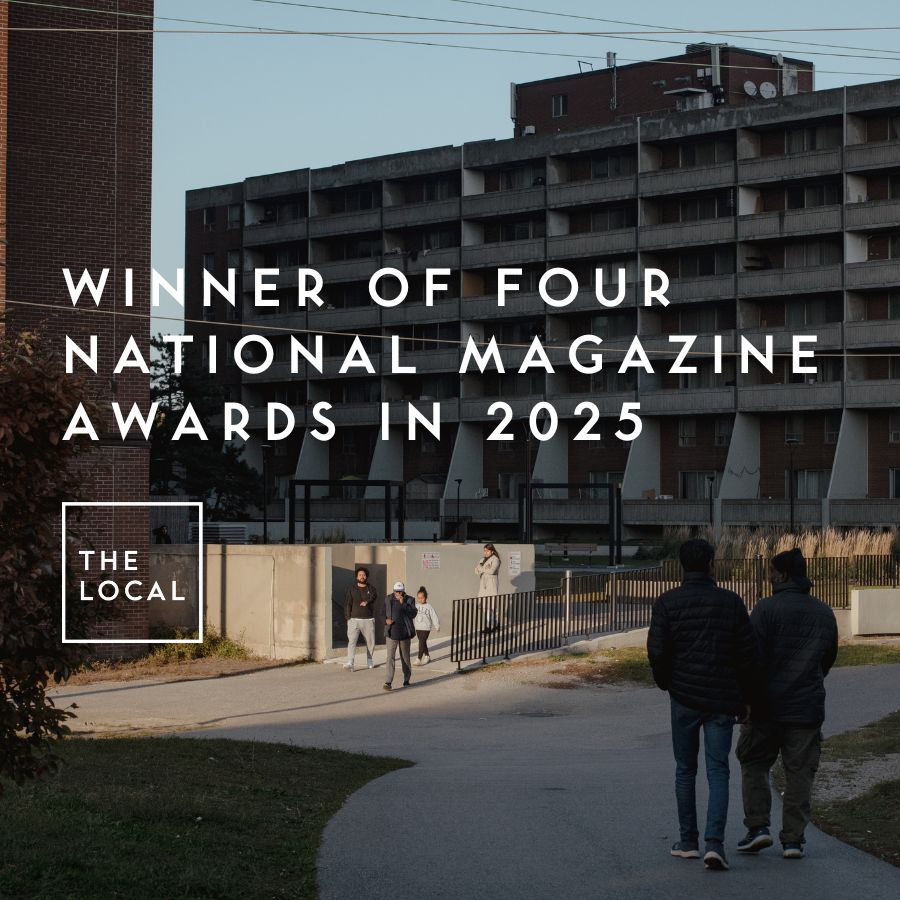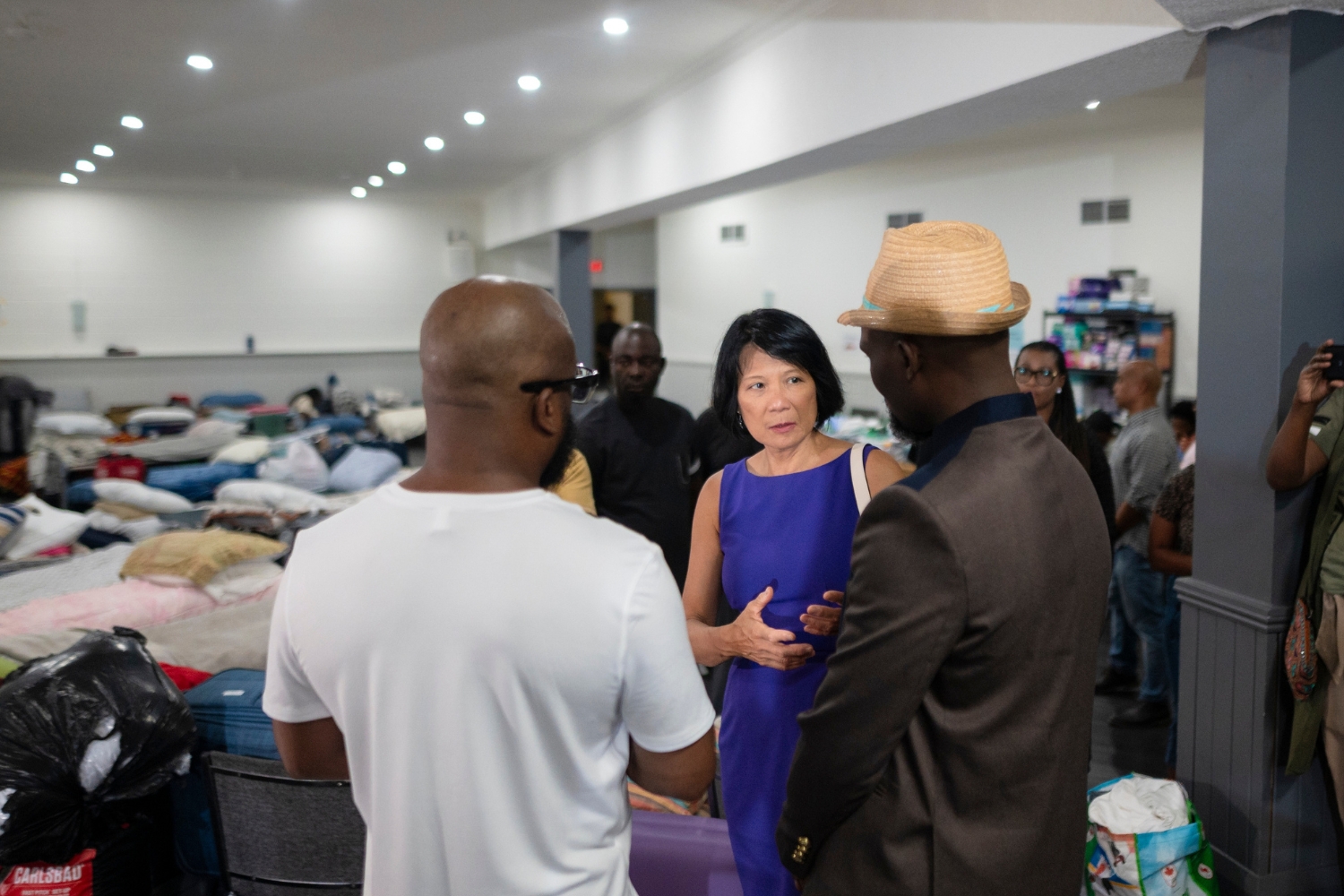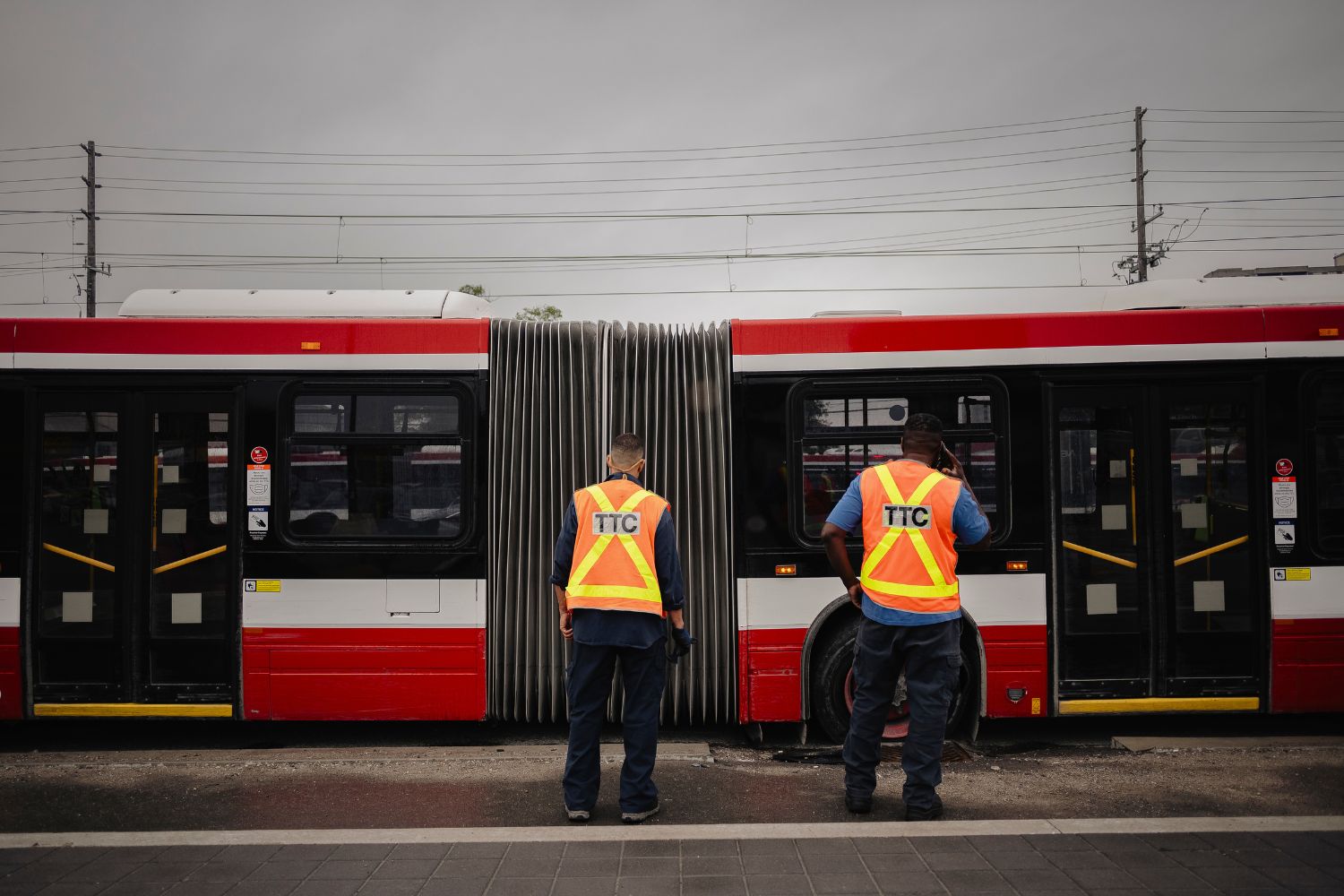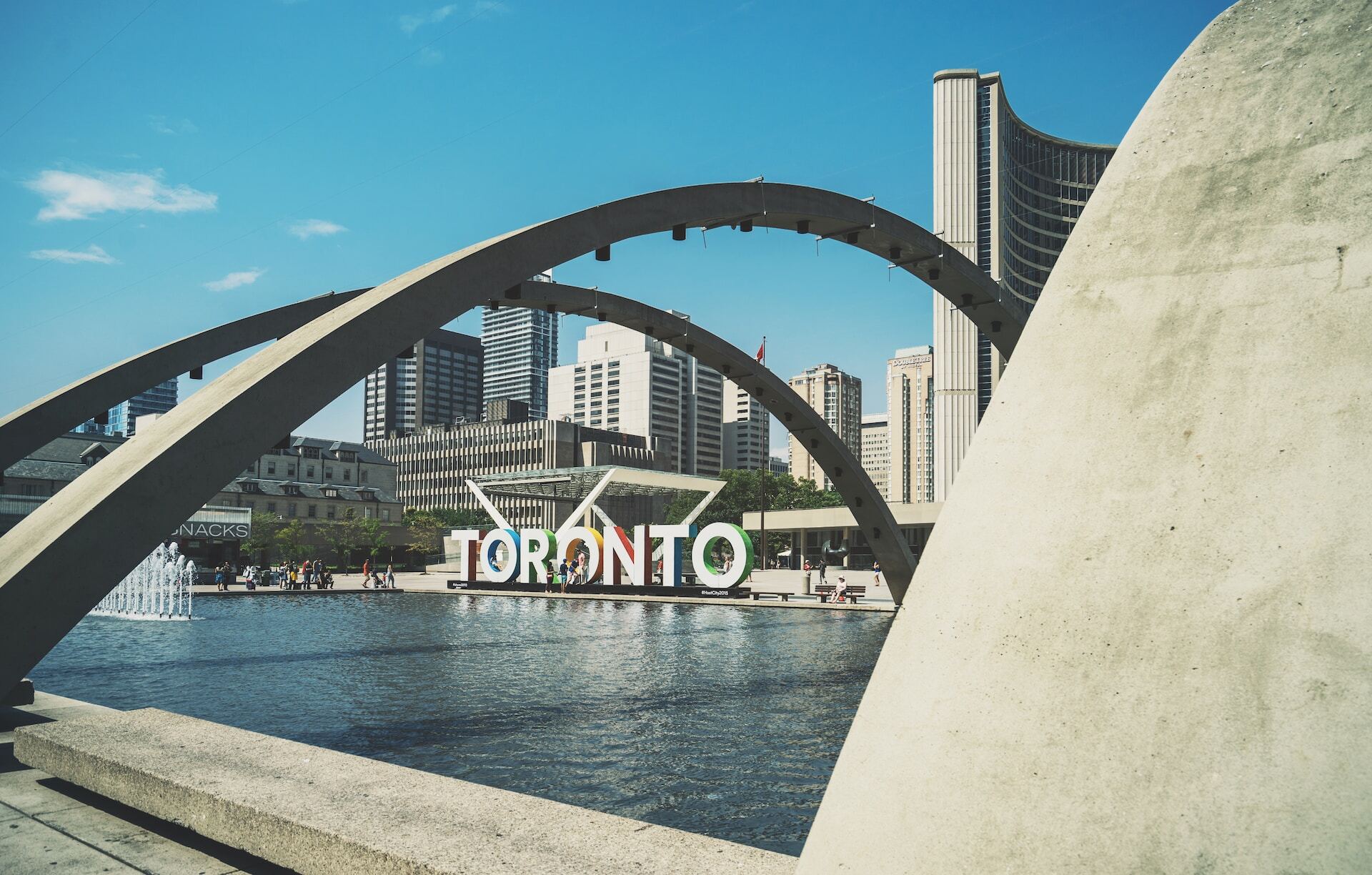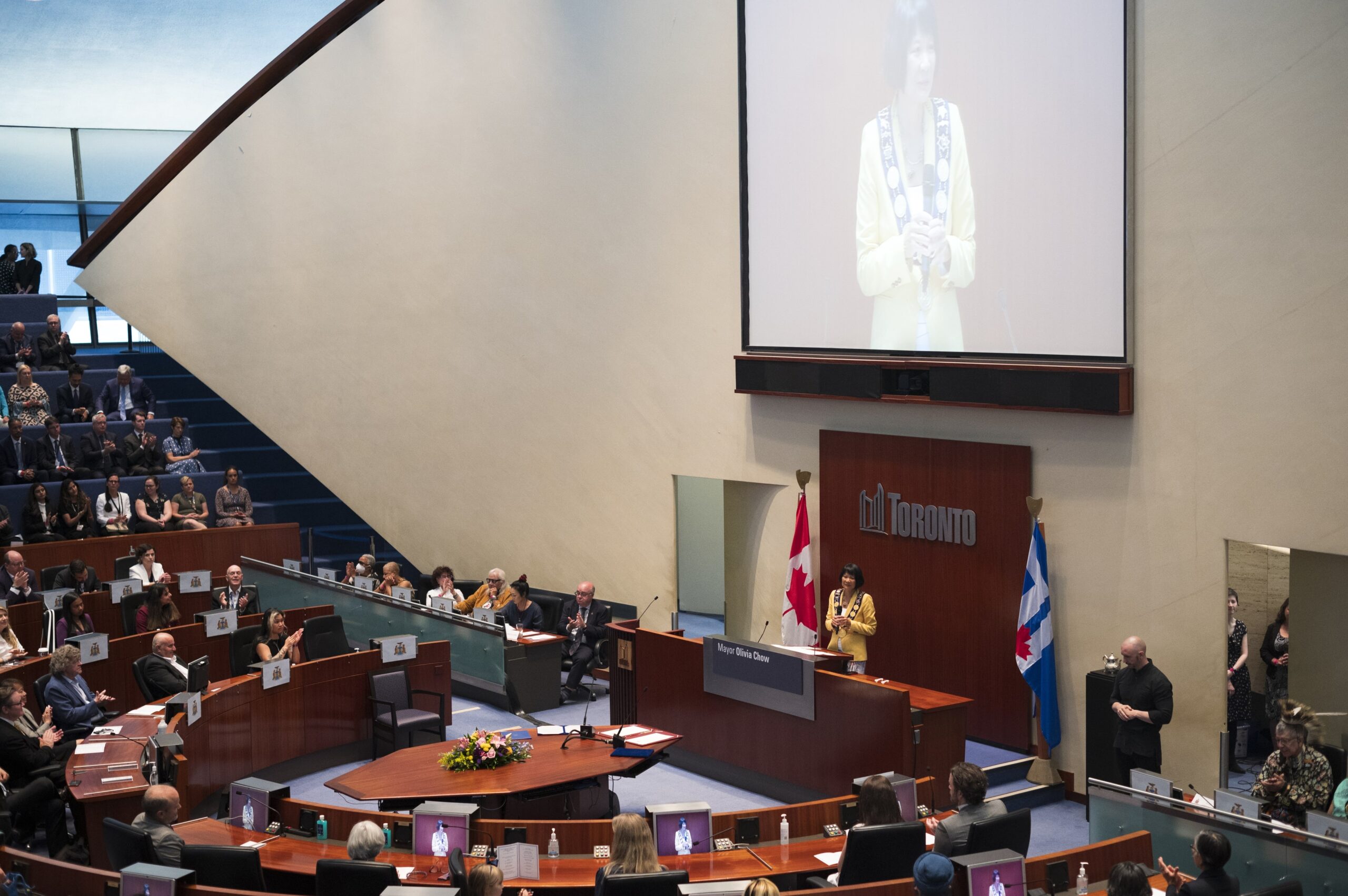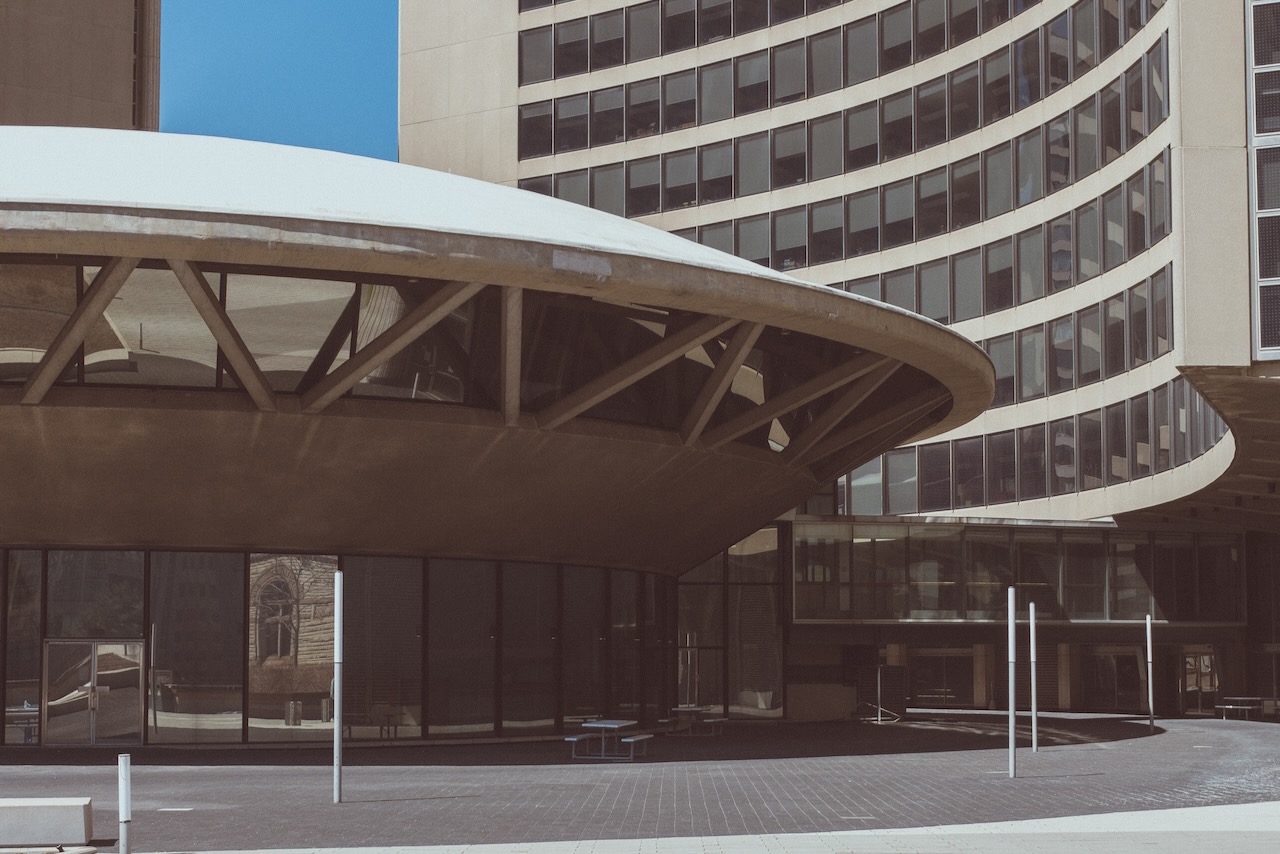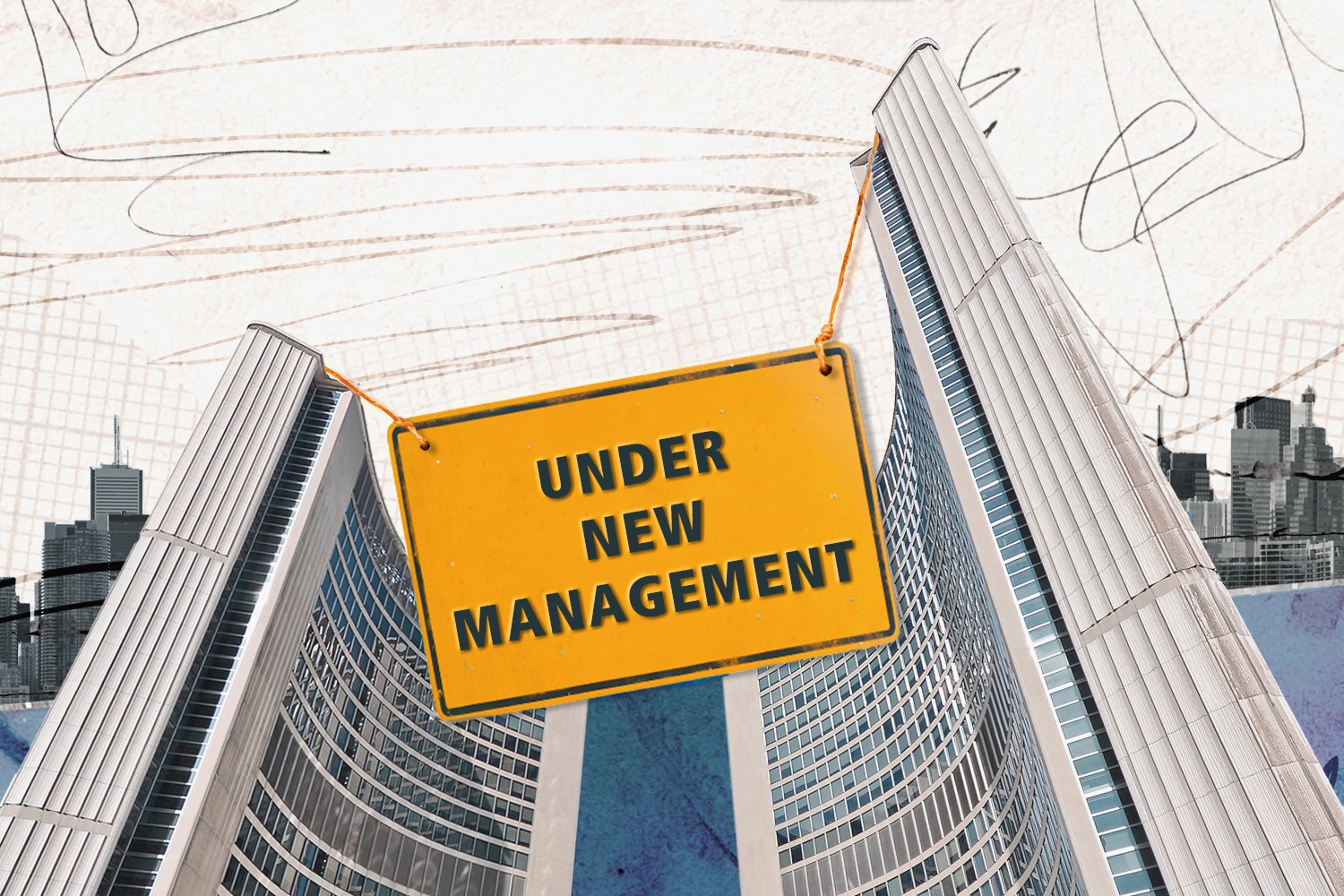

The first 100 days are crucial for a new mayor. In our new column, we’re following Olivia Chow’s first months in office—tracking her progress (or lack thereof) on election promises, who’s supporting and who’s impeding her, and everything else you need to know from City Hall.
For the first time in a very long while, Toronto city council might actually be getting…exciting?
Olivia Chow is not just Toronto’s first racialized woman mayor, but the first progressive mayor after twelve years of conservative leadership, austerity, and quiet civic neglect. The next few months will be crucial for Chow, city council, and the city. For new mayors, the honeymoon period of post-election goodwill is the best chance they may get to install allies in key roles and quickly deliver on campaign promises. And for long-sidelined progressive councillors, it’s a rare opportunity to set the agenda.
At the same time, numerous crises are coming to a head: homelessness, violence, the increasingly drastic effects of climate change, decaying transit infrastructure, and an over $1 billion hole in the budget. The era of city council kicking the can down the road is over—whether we’re ready for it or not.
In this column, published every two weeks, I’ll follow Olivia Chow’s first 100 days in office, tracking her progress (or lack thereof) on election promises and stated priorities, who’s supporting and who’s impeding her, and revealing the latest on the shifting balance of power on council. I’ll also do deep dives into particularly important issues and reports. Whether you’re a jaded policy wonk or just dipping your toe into municipal politics for the first time, there’s no better time to tune in.
Issue Spotlight: Shelter and Homelessness Crisis
On Tuesday, July 18, the federal government announced $97 million in funding for interim housing for asylum seekers, and the province announced a $6.67 million increase to a housing benefit program that helps people move from shelters to permanent housing. The next day, council voted unanimously to add 250 shelter spaces for refugees and work in partnership with non-profits, community groups, and other organizations.
This came after a remarkable outpouring of grassroots support for hundreds of people, largely from East Africa, who had been living on the street for weeks outside the downtown shelter assessment and referral centre at 129 Peter Street.
How We Got Here: At Wednesday’s council meeting, Shelley Carroll choked up as she recalled her and deputy mayor Jennifer McKelvie’s June 1 announcement—poorly attended because of the ongoing mayoral by-election—that, due to lack of requested federal funding, the city shelter system would start turning away refugees and asylum seekers. As a result, people arriving in Toronto hoping to claim refugee status were forced to wait on the street through June and July’s spates of wildfire-polluted smoke, heat waves, and thunderstorms.
Before the announcement of federal and provincial funding, the newly elected Chow had blamed the federal government for the crisis, but was noncommittal about reversing the city policy. The federal government, meanwhile, maintained they had provided plenty of funding already.
In the end, politicians and city staff were not the ones to break the stalemate. Community worker and homelessness advocate Diana Chan McNally started a GoFundMe on July 7 with fellow outreach worker Lorraine Lam, hoping to raise money to buy water.
“It was a pretty sudden decision,” she says. The fundraiser was wildly successful (it is currently at $77,149), and donations and supplies poured in. On July 10, Chan McNally and representatives from organizations supporting refugees met with Chow, two days away from taking the oath of office. Later that week, a coalition of Black-led groups including the Rwandan Canadian Healing Centre, the Black Community Housing Advisory Table, the African Centre for Refugees, and others called for governments to end the crisis, and turned two North York churches into makeshift shelters, transporting hundreds of people from downtown.
Looking Ahead: Advocates are grateful for the funding, but reiterate that the city is still waiting for full funding for the costs of housing refugees and asylum seekers. For massive systemic problems like homelessness, mutual aid can only go so far. In this case, it was effective as a political tactic to pressure governments. “I don’t think they would have even done that if we hadn’t had this giant groundswell [of support],” Chan McNally told me. “I think we effectively shamed them into providing money that we were promised.”
Will this have to happen again? Chan McNally is hopeful it won’t; that Chow has “some extra negotiation tactics under her belt that Tory didn’t have.”
But homeless encampments are starting to grow again, primarily in Allan Gardens and at Lamport Stadium, and while city staff are taking a softer approach, they are still trying to stop new people from setting up camp. The grassroots groups that coordinated encampment support and resisted clearings two years ago have largely fizzled out since then. If there’s any lesson individuals should take away from these recent events, perhaps it’s this: act as if it is all up to you, because it probably is.
The era of city council kicking the can down the road is over—whether we’re ready for it or not.
City Council Meeting
City council met on Wednesday and Thursday. Check out the agenda or revisit the livestream (day 1, day 2).
The big surprise: The Striking Committee is one of those boring little committees that meets rarely but is surprisingly important: they recommend who should sit on all the other committees and ABCs (city agencies, boards, and commissions). It’s currently made up of Tory loyalists—deputy mayor McKelvie as chair, plus Brad Bradford, Gary Crawford, Frances Nunziata and James Pasternak. At council, Chow wiped the slate clean by appointing Ausma Malik and Alejandra Bravo as Chair and Vice-Chair, with Gord Perks, Shelley Carroll, and McKelvie as members. Expect some dramatic shakeups within the next few months.
Chow’s agenda: Council easily passed motions on two things Chow has advocated for: declaring gender-based violence and intimate partner violence an epidemic and looking for ways to keep the Ontario Science Centre at its Don Mills location.
The budget hole: Reports for 2022 are in, and it’s bad. The city’s 2022 budget factored in an expected $1.4 billion in COVID-19 support funding from the federal and provincial governments. They’ve only gotten some of that. As a result, there’s a $395 million hole in the operating budget. To fill it, they’ve had to reach into the capital budget. Many projects have been cancelled or permanently reduced; others have been delayed. You can see the full list in this PDF.
The 2023 budget outlook is also grim: they’re predicting an $854 million operating budget shortfall.
Wheel-Trans: As The Local reported last summer, the way Wheel-Trans operates is changing. The TTC’s long-term strategy is to make its transit system fully accessible, so that the majority of Wheel-Trans users can use regular transit. As part of this, they are shifting Wheel-Trans users from door-to-door service to a system called “Family of Services”, where users transfer between conventional and Wheel-Trans vehicles for different legs of their trip. So far, it’s not going well.
Thanks to changes in eligibility criteria, longtime Wheel-Trans users have to re-register. However, many users complain the timelines are too short, risking cutting off people’s transit access.
Alcohol in City Parks: The alcohol-in-parks pilot project is a go, as a time-limited pilot from August 2 to October 9 this year at 22 parks across the city. Here’s the full list of the locations. Something that came up in the discussion not everyone might know: technically, people are not allowed in parks between midnight and 5:30 AM (mood killer, I know!). Also, while discussing the pilot, councillor Stephen Holyday inadvertently revealed he missed the memo that politicians shouldn’t pose with easily Photoshopped signs. (Actual sign.)
What’s Next
- Chow’s first Council meeting went swimmingly, with her key items passing easily and seemingly everyone on the Council floor in an agreeable mood. (Even Stephen Holyday, a perennial conservative nay-sayer who will undoubtedly be one of Chow’s most reliable opponents, had a few amendments sail through—a rare event.) However, it’s not surprising that council passed the motion on refugee shelter spaces unanimously, given it’s an apparent crisis with a pre-allocated budget. What will be harder to pass are the items aiming to address the root of the probem: namely, overall shelter spaces, building affordable housing, and raising taxes.
- The newly revamped Striking Committee, now stacked with solid Chow allies, will be one to watch: we will likely see progressives taking the helm of many committees and, for the first time in years, setting the agenda.
- But August is also a sleepy time on council. With many up at their cottages trying to make the most of a summer characterized by erratic, unusual weather, what better time to think about the climate crisis? Stay tuned…
